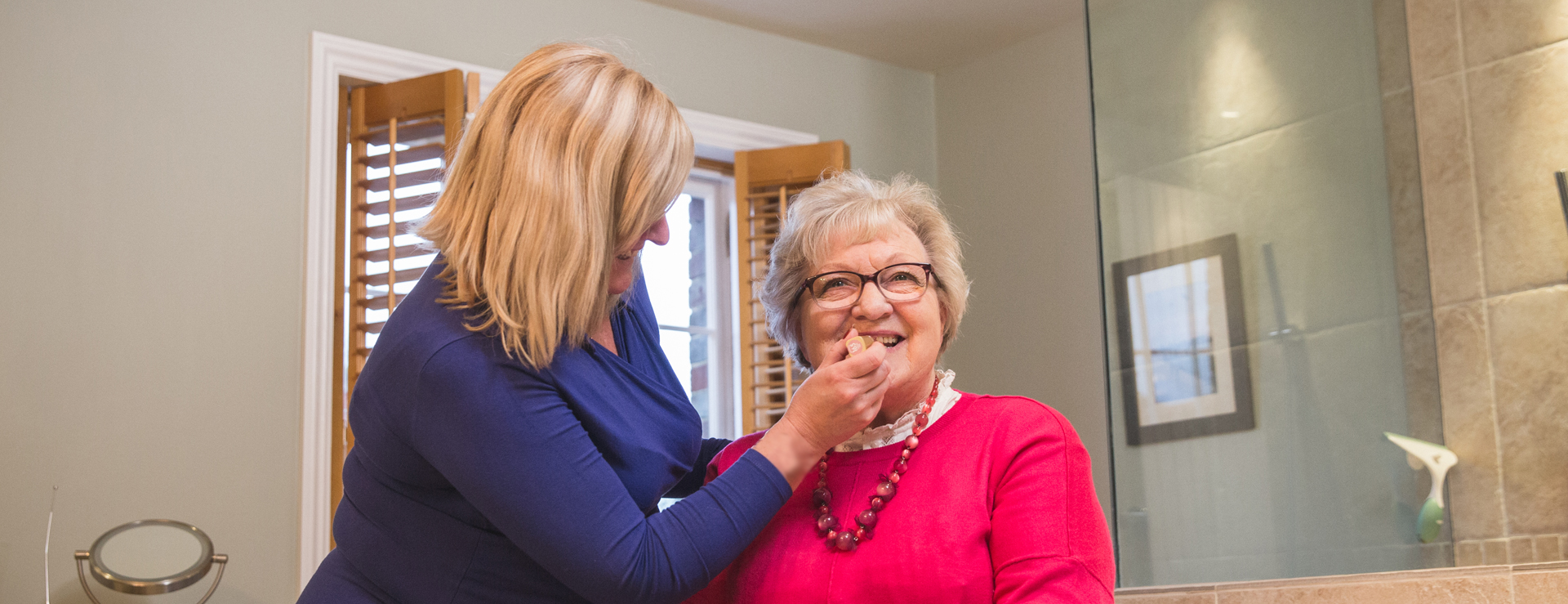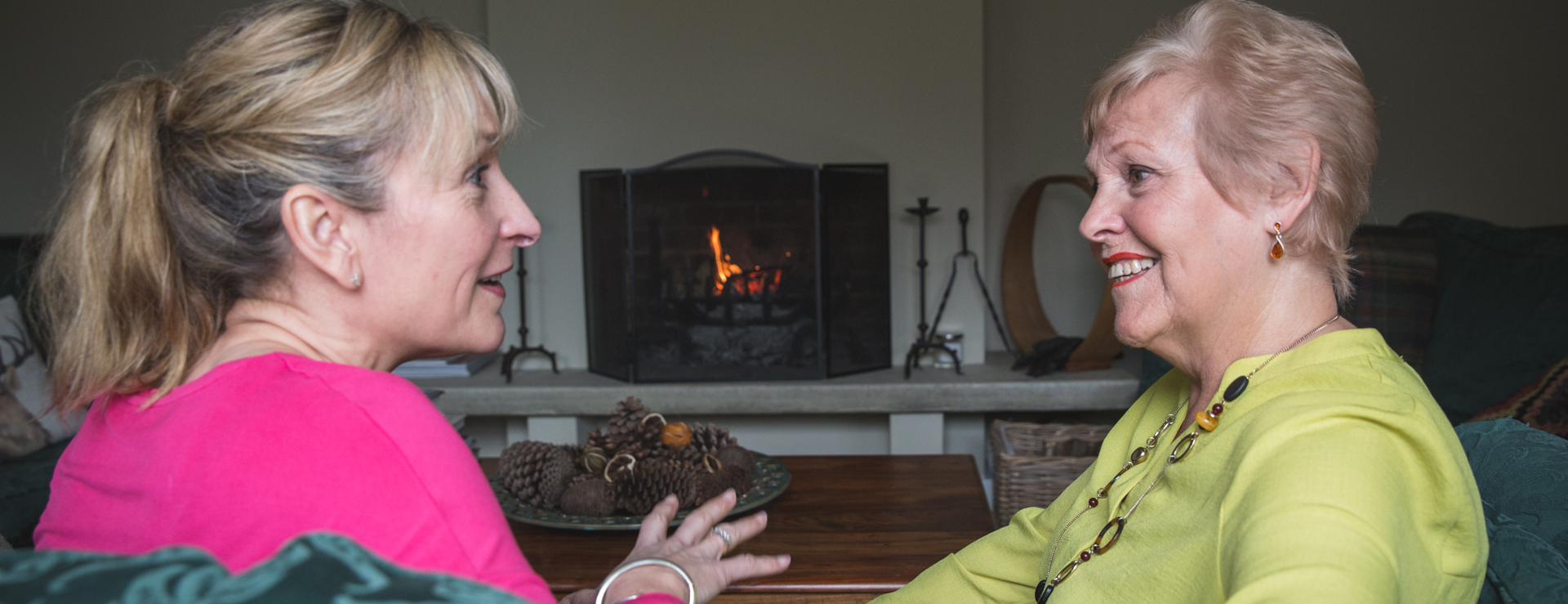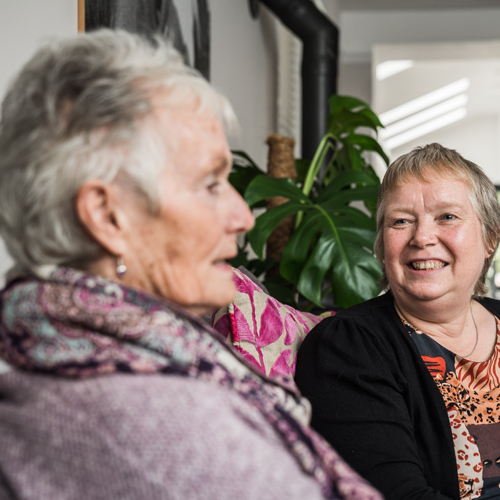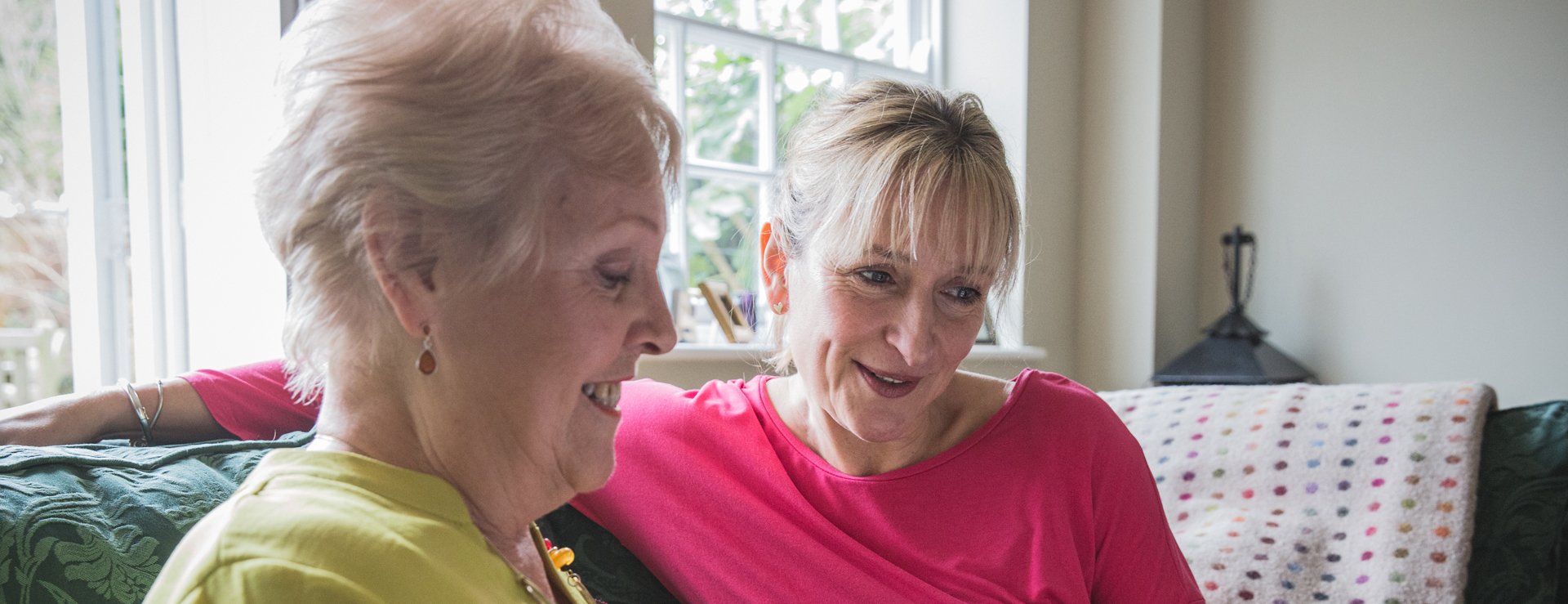See the Latest Blogs at Oxford Aunts
If you are considering live-in care for the first time, you may have questions such as “what do carers do?” and “is a live-in carer right for me?”. Here we provide guidance on what you can expect from a live-in carer so that you and your family can make an informed decision. What is live-in care? Live-in care is when a professional and fully-trained carer moves into your home with you to provide you with the one-to-one support you need to continue living independently. The care provided will be tailored to your specific needs to ensure you can continue living happily and safely in the comfort of your own home. This dedicated care can be provided to an individual or
Read more
Some people living with Alzimieher’s disease and other types of dementia experience difficulties in the late afternoon or early evening. This is known as ‘sundowning’ and it can lead to distressing symptoms such as agitation or confusion. Sundowning may continue into the night making it difficult for people with dementia to fall asleep or stay in bed. The behaviours associated with sundowning can happen at any stage of dementia but are more common during the middle and later stages. At Oxford Aunts, we understand how upsetting it can be when a loved one with dementia experiences sundowning. We support many families in Oxfordshire and its surrounding counties to manage this situation with our high-quality live-in care service for those who need dementia
Read more
As people are now living longer than ever, the number of people with dementia is on the rise. It is estimated that there are currently 850,000 people living with dementia in the UK alone, and this number is only expected to increase in the coming years. Dementia is not a disease itself. The term dementia is an umbrella term for a variety of conditions that cause a decline in cognitive function. People will experience their symptoms differently, but there are some common early warning signs of dementia everyone should be aware of. By recognising the early symptoms of dementia and obtaining a diagnosis, you can be assured that dementia treatment is arranged in good time and a plan created for the future
Read more
A MAR chart is a working document used to keep track of all the medications a person takes. By keeping clear, accurate and up-to-date records, a live-in carer can help keep your loved ones safe. When a carer administers medication, it’s important that everything is recorded correctly. Keeping a close eye on all medication taken is vital for preventing unpleasant side effects, dangerous medication interactions or overmedication. What is a MAR chart? A medication administration record (MAR) chart – sometimes referred to as a MAR sheet – is a printed or electronic chart used to record the administration of medicines. In order to be effective and accurate, all the medications a person takes must be included; whether they are prescribed
Read more
Domiciliary care is a type of visiting home care that provides assistance to people who need extra support to remain independent. A domiciliary carer will visit clients directly at home to provide one-to-one support with daily tasks, personal care, medication, administration and other activities that enable them to continue living with freedom and choice. Domiciliary care is the ideal option for anyone who may prefer not to move out of their home permanently. It can be short-term or permanent depending on the individual’s needs. We will match you with an experienced and dedicated domiciliary who is skillfully trained and chosen to match your personality and interests. At Oxford Aunts, we are expanding our established live-in care service to offer flexible domiciliary care
Read more
An advocate is someone who can provide valuable assistance in navigating the complex landscape of health and social care. By listening to your concerns and providing information, advocates empower people to make informed decisions and ensure their interests are best represented. Here we explore what it means to be an advocate and how they can help you or someone you care for. What is advocacy? Advocacy is a free service provided to people who require extra support in navigating the complex world of health and social care. Advocates are independent, meaning they do not work for the council, the NHS or care providers. Instead, their role is to provide people with the support they need to make informed decisions about
Read more
When providing care to vulnerable people, there is nothing more important than treating them with respect and dignity. Dignity is recognising the value of each person as an individual and treating them with empathy, compassion and respect at all times. At Oxford Aunts, dignity and respect are at the heart of our live-in care services. Since 1967, we have proudly cared for thousands of people enabling them to stay safely and happily in the comfort of their own homes whilst receiving the care they need. The care we provide is person-centred and highly personalised to ensure our clients can live well in any way they wish. Our compassionate and experienced carers are focused on providing care that promotes choice and independence
Read more
If you are living with an ongoing health condition that impacts your ability to live a comfortable and independent lifestyle, you may be eligible for NHS Continuing Healthcare funding. This is a package of care that is fully funded by the NHS. The application process for NHS Continuing Healthcare funding is fairly complicated and involves several stages. To help you through this process, we have created this comprehensive guide on everything you need to know about the initial assessment stage, the NHS Continuing Healthcare Checklist. What is the continuing healthcare checklist? The Continuing Healthcare Checklist is a screening tool used by the NHS to assess whether an individual is eligible for NHS Continuing Healthcare – a package of care that is fully
Read more
Dementia is an umbrella term that refers to a group of neurological conditions that affect the brain. There are over 100 types of dementia of which the major symptom is a gradual and progressive reduction in brain function over time. The most common causes of dementia include Alzheimer’s disease, vascular dementia and dementia with Lewy bodies. Although the risk of getting dementia increases as we age, people in their 40s and 50s can also have dementia. Every type of dementia is progressive meaning symptoms will gradually worsen over time. Despite the challenges presented by dementia, it is possible to live well at home with our expert dementia care from live-in care specialists. What are the different types of dementia? Alzheimer’s Disease Alzheimer’s
Read more
If you or a loved one are having difficulties remembering to take your medication, a dosette box offers a practical and easy-to-use solution to medication management. Forgetting to take your medications or taking them incorrectly can have serious consequences for your health, especially for the older generation. In this short guide, we offer practical advice and guidance on how dosette boxes work and how you can use one to effectively manage medications. What is a dosette box? Medication management has grown increasingly complex over the years. Age UK estimates that around 1 in 5 adults in the UK are living with two or more complex conditions and that over half of people 75 years or older are taking five or more medications
Read more












